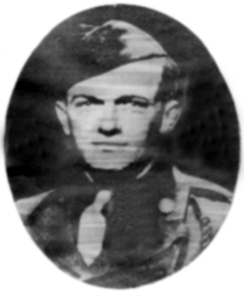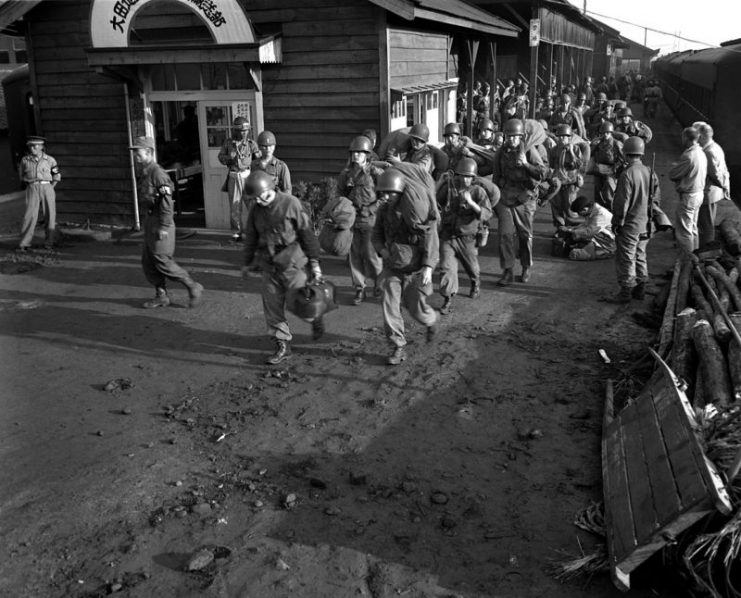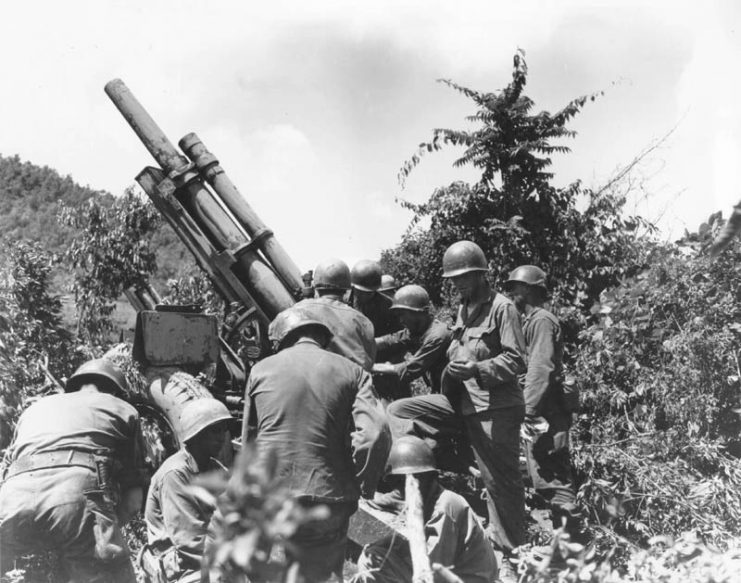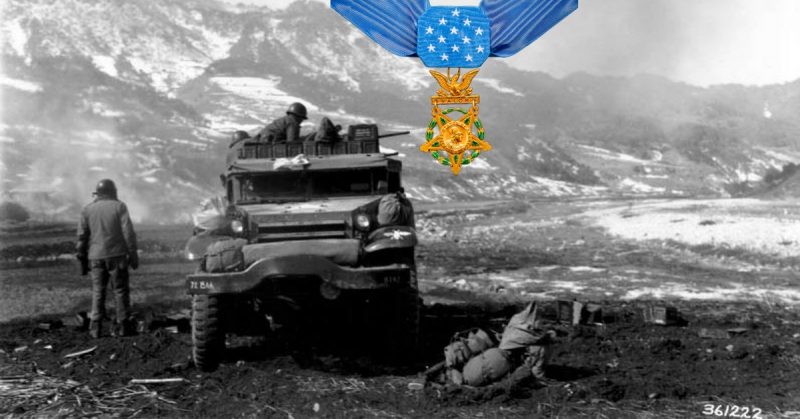Having just emerged victorious from WWII, losing was far from the minds of the American military in 1950. Yet by July of that year, they found themselves encircled and clinging for life to small portions of the Korean Peninsula.
As the US military worked feverishly to set up a final defensive perimeter near Pusan, the men of the 24th Infantry Division were tasked with delaying the rapid North Korean advance. Holding the line near Taejon, Sergeant George D. Libby put on a selfless display of gallantry indicative of just how much fight was left in the Americans.
During the withdrawal from the city, Sgt Libby’s truck came under fire from a North Korean roadblock. With everyone else in the vehicle killed or injured Libby fought alone to return his worst upon the enemy and administer aid to the wounded. He then hailed down a US M-5 artillery tractor and loaded the wounded on board. When the overwhelming enemy forces attempted to target the driver of the tractor, Libby used his body as defensive armor. Placing himself directly between the driver and the enemy fire, Libby protected with his life the only man capable of driving the wounded to safety. Eventually succumbing to his wounds, Libby fell, but not before earning the eternal gratitude for those he saved and the nation’s highest military honor.

From One War to the Next
George Libby was born on December 4, 1919, in Bridgton, Maine. Coming of age just as America was about to get thrust into global war Libby found his opportunity to serve as many men of his generation did. He enlisted in the Army and eventually saw service in Europe during WWII. As the war wound down and the ranks of the US military were rapidly shrinking Libby decided to stay on, while many experienced veterans left. The result was a military lacking experience and proper training by 1950- precisely when they needed it most.
On June 2, 1950, the North Korean Army poured across its southern border in massive numbers. While the American and South Korean forces attempted to hold the line, the Korean advance proved too strong. It was decided that the 24th Division would try to make a stand near the South Korean city of Taejon allowing time for other American troops to set up a defensive perimeter further to the south. The Americans dug in along the Kum River and fought for three days before being forced back into the city.
The battle then continued for three intense days of urban combat before the final decision to withdraw was made. Staying behind with some of the last elements to leave the city was Sergeant George Libby. By then the town had been surrounded, and North Korean checkpoints manned most exits south. It was in such an environment with Americans attempting to gun their way south that George Libby conducted his inexplicable act of gallantry and courage.

Racing Towards Friendly Lines
On the evening of July 20, 1950, Sergeant Libby boarded a truck headed for friendly lines as one of the last elements to leave the city. It was then that the vehicle ran into a North Korean roadblock that had been set up to ambush retreating troops. Under an intense volley of fire, the truck was instantly disabled, and every soldier on board was either killed or severely wounded except for Libby. Attempting to fight back, Libby jumped into a nearby ditch which provided some cover and began to return fire. Despite his position of relative safety, Libby on two occasions ran across the road to deliver aid to other wounded soldiers.
Libby then noticed a passing M5 half-track towing a howitzer and flagged it down. Under a continued intense barrage of fire, Libby sought to load up the wounded when he realized that the North Koreans were concentrating their firepower towards the driver. Realizing that if the driver were taken out of action, there would be no one left to evacuate the wounded Libby did the inexplicable. He shielded the driver with his own body while he returned fire upon the enemy. Doing so resulted in near immediate wounds to his arms and body yet Libby continued.

A Fitting Honor
As the half-track continued to weave through the town in an attempt to escape, they came across other wounded soldiers. Libby, on more than one occasion, dismounted to help load the wounded then resumed his position as the driver’s bodyguard. It was only after losing a significant amount of blood that Libby eventually passed out and relinquished his role.
Sergeant George Libby succumbed to his wounds that day but not before earning a hallowed place in military history. For his actions, Libby was awarded the Medal of Honor. Due to the gallantry displayed by him at Taejon, the Americans were able to successfully set up a defensive perimeter around Pusan and begin their push back north. As the war slowly came to a close in 1953, a bridge across the Imjin River in South Korea was dedicated in honor to the man who held the line so that others might live.
